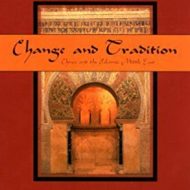I took the South Shore Line into Chicago over break, and took Reza Aslan’s book to read on the ride. With the title “No god but God” and the Kaaba in Mecca emblazoned on the cover, it’s pretty clear that it’s about Islam with one quick glance. As soon as I got on the train and took it out of my bag, I felt slightly nervous and self-conscious. What if someone approached me to talk about Islam? The thought that I could have a pleasant and/or informative discussion with a stranger about religion was kind of exciting, as I feel prepared to have an intelligent, polite, and respectful conversation about Islam—but what if I ran into someone who wasn’t so nice? What if someone wanted to spout hate and Islamophobia to my face because of the book in my lap? I am not a confrontational person, and on a train where you can’t really escape a conversation, I found this possibility scary.
But I immediately felt silly as I realized—what if I was a woman who wore a hijab? What if I was a man who wore a turban? (A Sikh tradition, but a group that still faces hate against Islam due to a common lack of religious literacy.) The way that these people dress is much more on display than the title of the book I’m carrying. It’s so terrible that it must take bravery every day to just exist as they feel comfortable, in a public world that may not receive them kindly. It made me much more empathetic to how these people must feel getting on a train, or walking into a grocery store, or going to the movies. I was immediately embarrassed that it took my personal experience of a much less visible situation to open my eyes more to this. While I felt I was considerate of the plight of people whose religion and beliefs are on visual display, something that I have always the privilege of not nonverbally announcing myself, I think that I can feel even more deeply for them now, even just a little.
